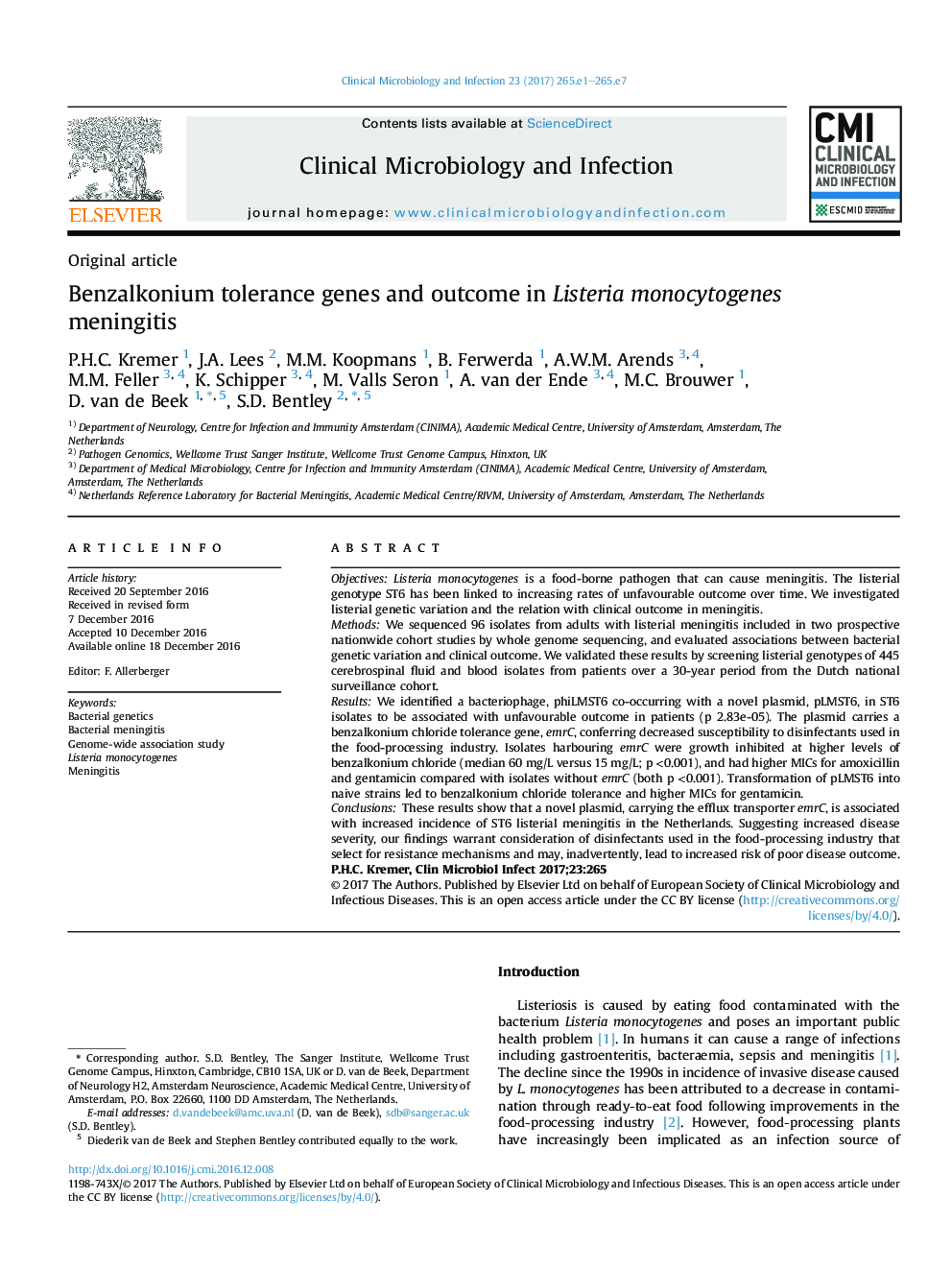| Article ID | Journal | Published Year | Pages | File Type |
|---|---|---|---|---|
| 5671539 | Clinical Microbiology and Infection | 2017 | 7 Pages |
ObjectivesListeria monocytogenes is a food-borne pathogen that can cause meningitis. The listerial genotype ST6 has been linked to increasing rates of unfavourable outcome over time. We investigated listerial genetic variation and the relation with clinical outcome in meningitis.MethodsWe sequenced 96 isolates from adults with listerial meningitis included in two prospective nationwide cohort studies by whole genome sequencing, and evaluated associations between bacterial genetic variation and clinical outcome. We validated these results by screening listerial genotypes of 445 cerebrospinal fluid and blood isolates from patients over a 30-year period from the Dutch national surveillance cohort.ResultsWe identified a bacteriophage, phiLMST6 co-occurring with a novel plasmid, pLMST6, in ST6 isolates to be associated with unfavourable outcome in patients (p 2.83e-05). The plasmid carries a benzalkonium chloride tolerance gene, emrC, conferring decreased susceptibility to disinfectants used in the food-processing industry. Isolates harbouring emrC were growth inhibited at higher levels of benzalkonium chloride (median 60Â mg/L versus 15Â mg/L; p <0.001), and had higher MICs for amoxicillin and gentamicin compared with isolates without emrC (both p <0.001). Transformation of pLMST6 into naive strains led to benzalkonium chloride tolerance and higher MICs for gentamicin.ConclusionsThese results show that a novel plasmid, carrying the efflux transporter emrC, is associated with increased incidence of ST6 listerial meningitis in the Netherlands. Suggesting increased disease severity, our findings warrant consideration of disinfectants used in the food-processing industry that select for resistance mechanisms and may, inadvertently, lead to increased risk of poor disease outcome.
